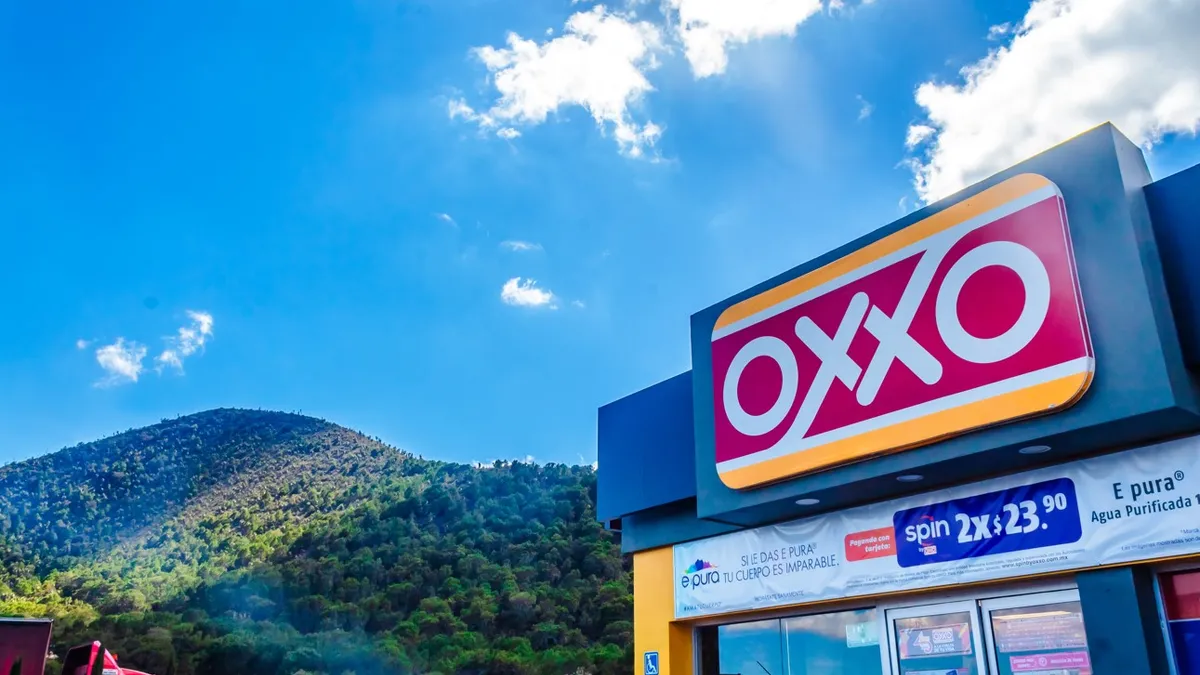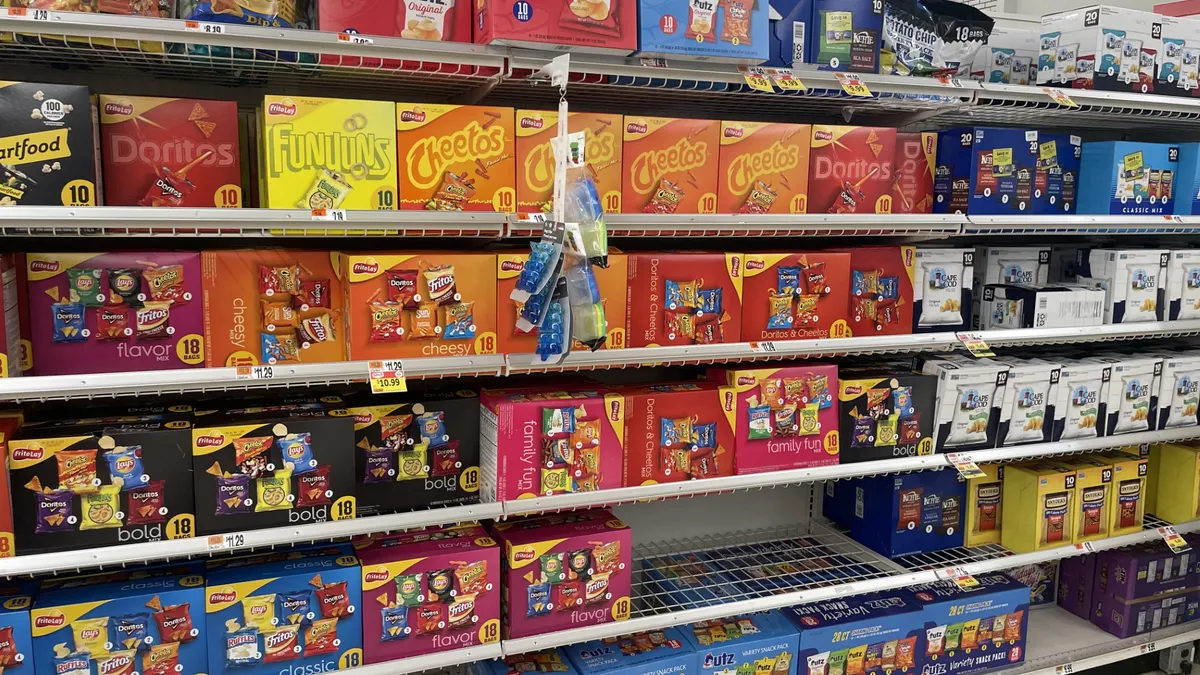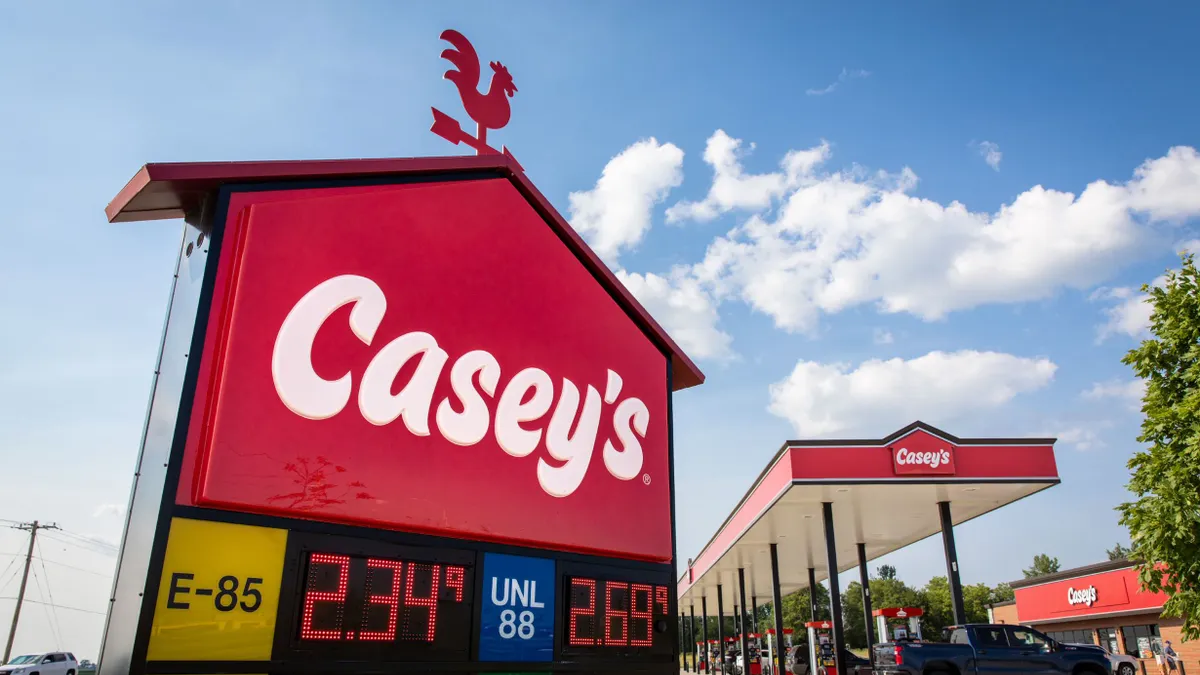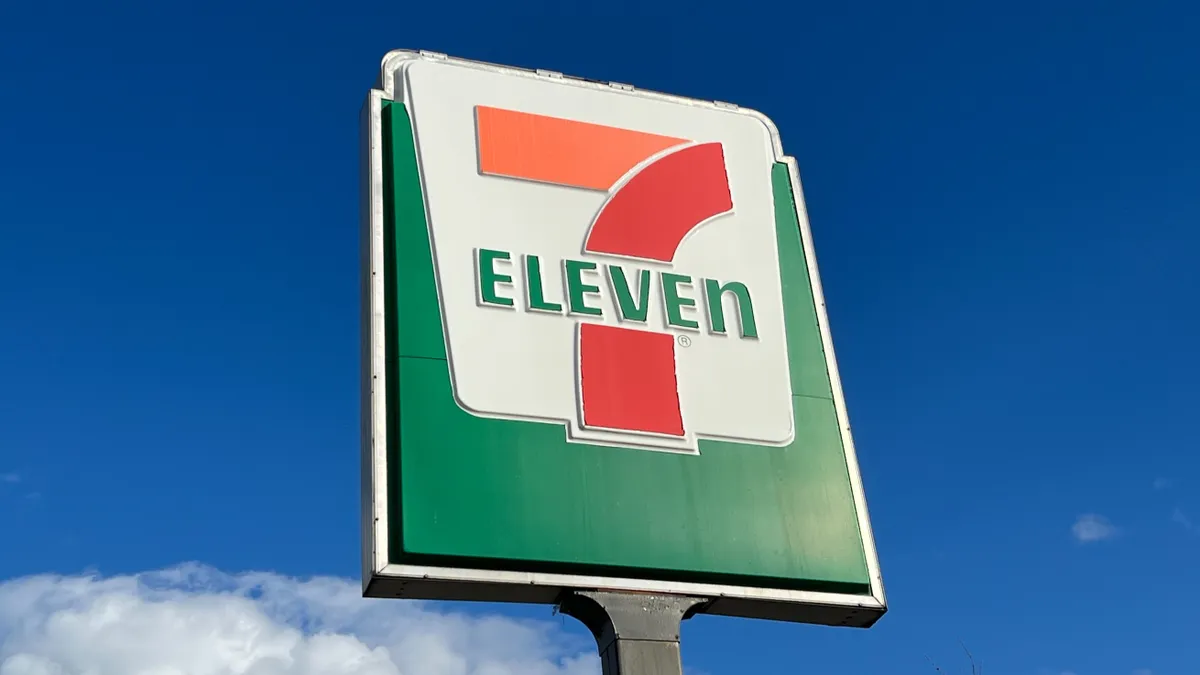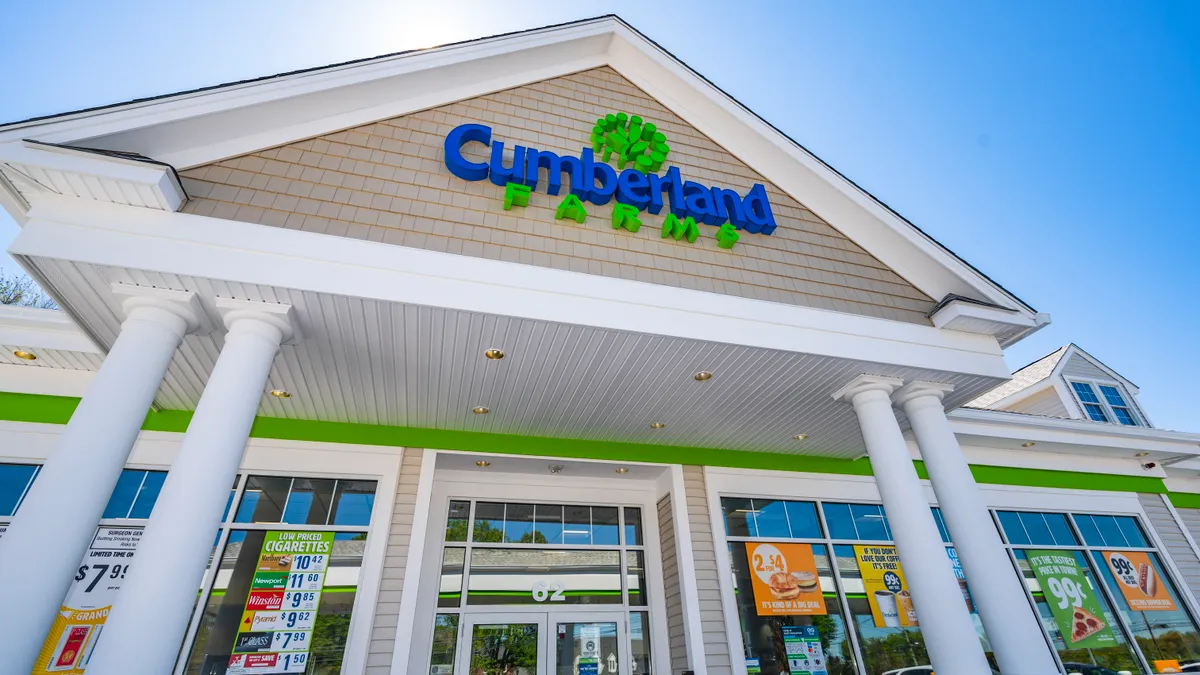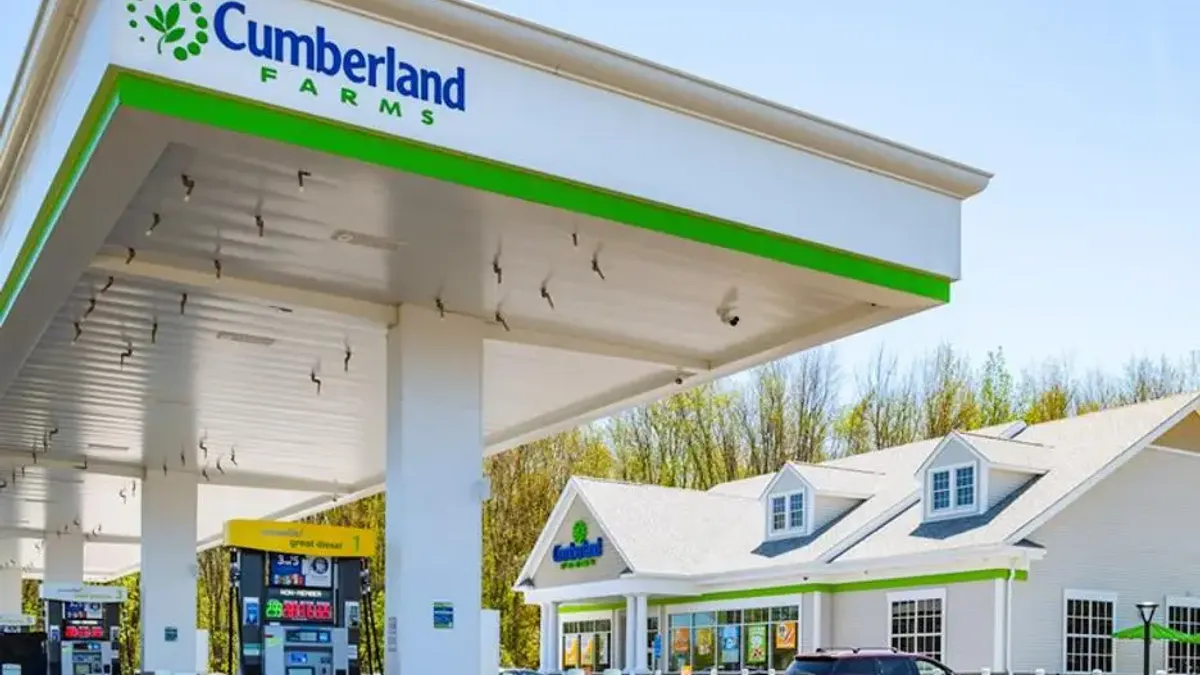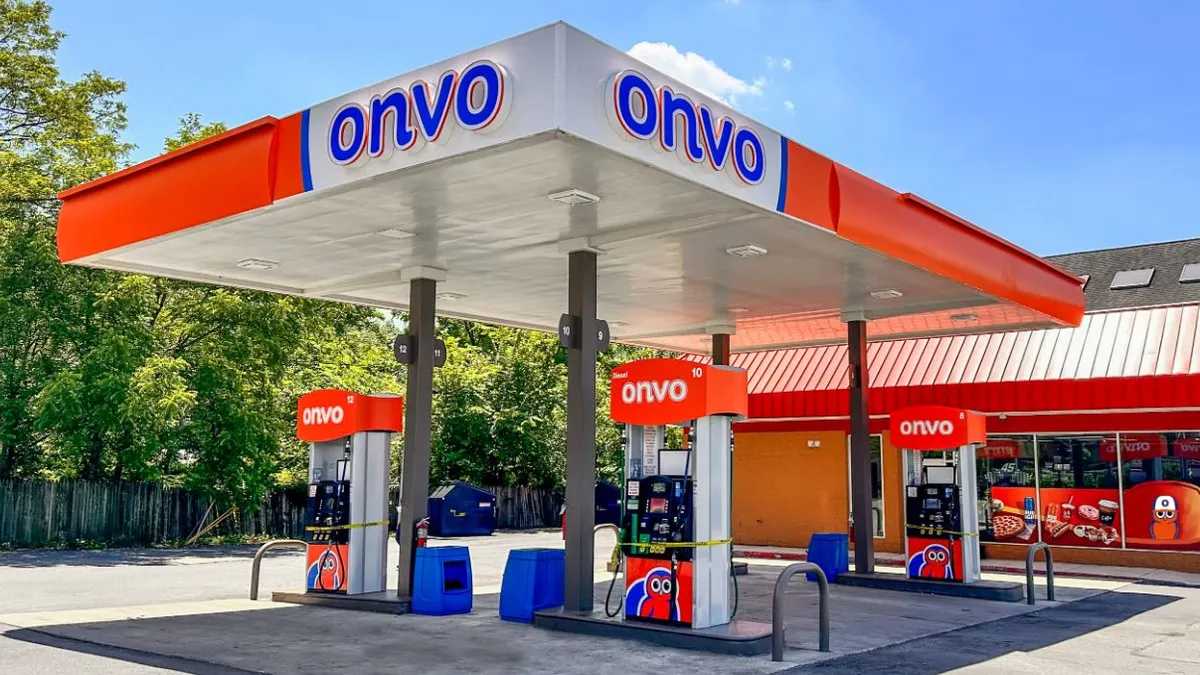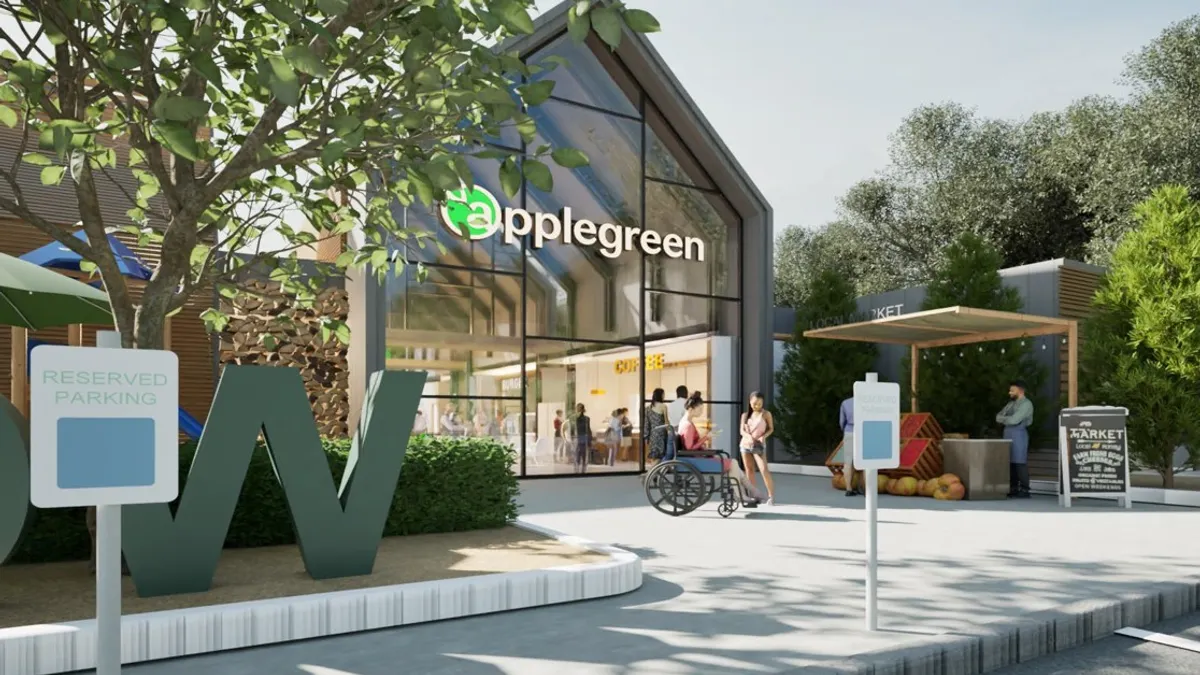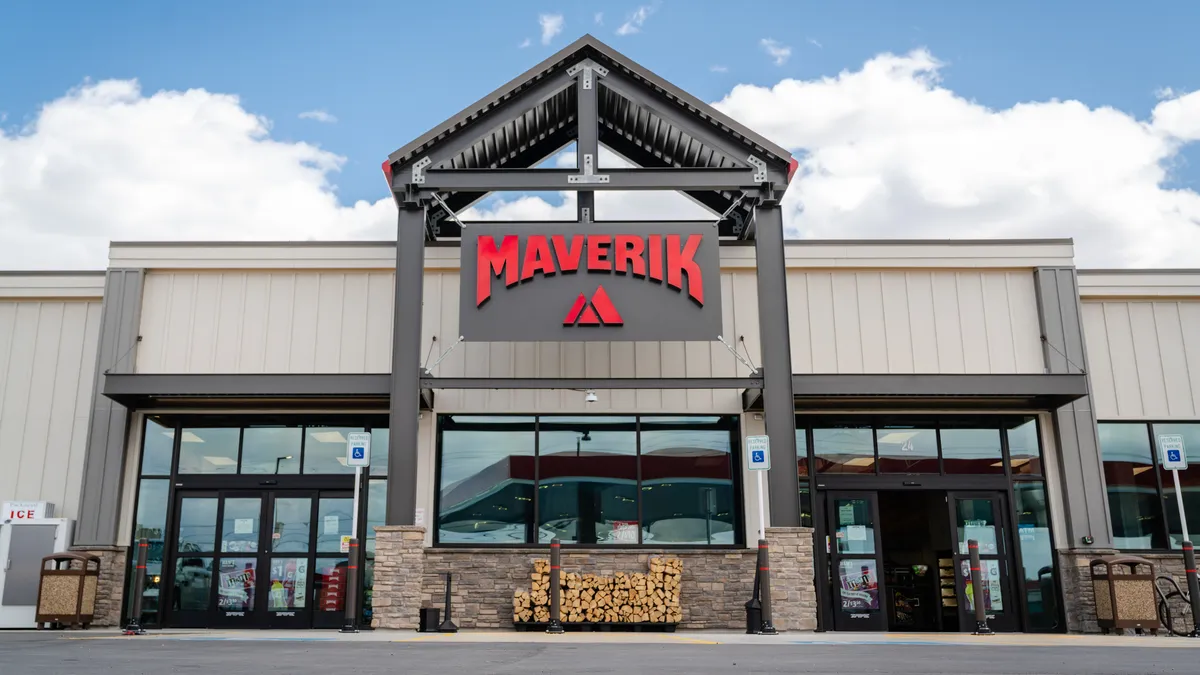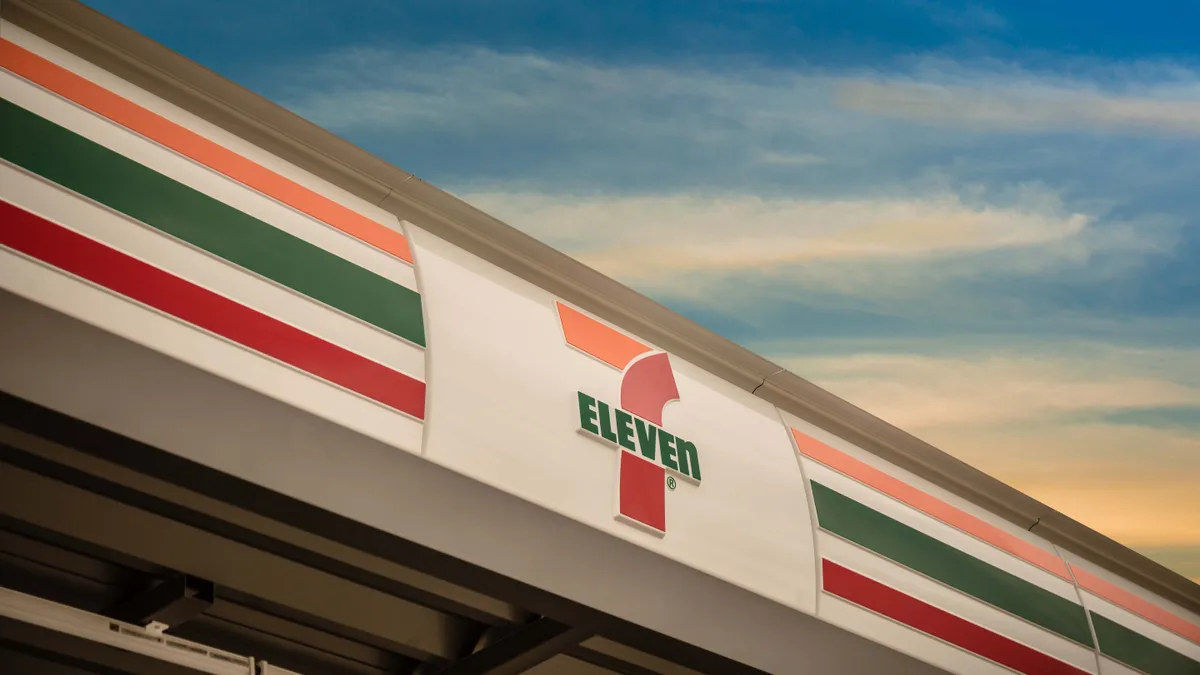Since opening its first Oxxo convenience store in its home country in the late 1970s, Mexican retailer and bottling company Fomento Económico Mexicano S.A.B. de C.V. (FEMSA) has turned the banner into the largest c-store chain in Latin America, reaching nearly 23,000 locations also across Brazil, Chile, Colombia, Ecuador, Peru and other nations.
Speed has been central to this growth. In Mexico, FEMSA opens three newly built Oxxo locations every day, and has done this for more than a decade, Constantino Spas, CEO of FEMSA’s Americas and Mobility division, said in an interview with C-Store Dive during the 2024 NACS Show in Las Vegas.
But as it opens stores at a rapid clip around the globe, FEMSA is hyperfocused on ensuring every new Oxxo caters to the tastes of each region’s guests. Nearly every Oxxo location is developed through FEMSA’s “need-state model,” which takes traffic patterns and consumer behaviors into account when considering what the merchandise assortment will be, how the aisles are laid out and what the site’s overall value proposition will be, Spas said.
This “ability to deep dive and understand our consumer” is FEMSA’s “secret sauce,” he added.
“Our stores can be very close by, but given the traffic pattern, given the type of understanding that we have on the consumers, we could have two very different stores serving very different needs,” Spas said.
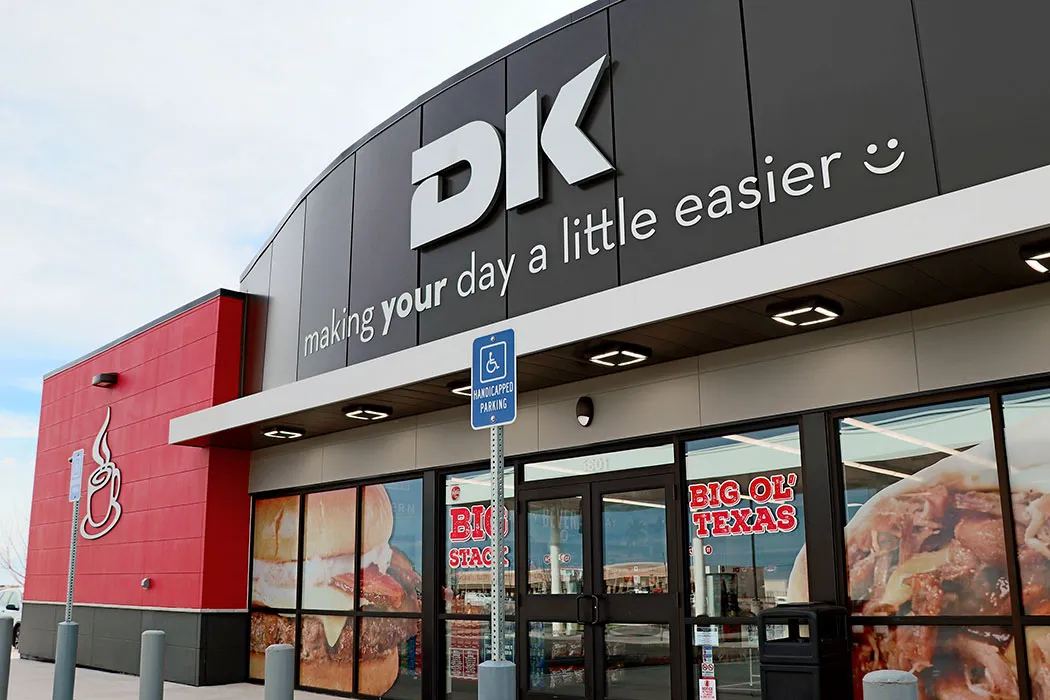
FEMSA’s focus on regionality will be essential as the company embarks on its long-awaited entrance into the U.S. As of Oct. 1, FEMSA is the owner and operator of 249 c-stores in Texas, New Mexico and Arkansas after Delek US Holdings agreed to sell the locations for $385 million back in August.
Spas confirmed that FEMSA plans to rebrand these locations from Delek’s DK banner to Oxxo. However, he added that this transition will occur slowly. FEMSA first needs to lay the groundwork in becoming relevant in the U.S. and introducing the Oxxo brand to consumers across the many regions where it operates.
“I think that's the biggest challenge, or the biggest task, that we're focused on right now,” he said.
Site by site, neighborhood by neighborhood
FEMSA’s leadership team has a framework in place for how it intends to expand across the country — it eventually aims to establish a foothold from the Southwest all the way to the Southeast, up to the Carolinas and Virginia, Spas said. However, he acknowledged that this plan can change any moment due to how nuanced the U.S. is and how fragmented its c-store industry is.
Spas added that while it’s been in the U.S. less than a month, FEMSA is already grasping what tweaks it’ll need to make to “understand the U.S. realities and complexities.”
“This business is store by store, site by site, neighborhood by neighborhood,” Spas said. “You really need to understand not only the consumer nuances, but also the competitive dynamics that are close by to your store. You can't have an overall strategy and think that playing that particular blueprint will work.”
Nearly every location FEMSA acquired from Delek has the same value proposition regardless of what community it’s in or who the customers are, Spas said. FEMSA will work to adapt those stores “to the realities of the site and to the consumer requirements that those particular sites have,” he said.
“Deeply understanding, at a very granular level, the consumer preferences, behaviors, needs and requirements — I think that's the biggest task,” Spas said.
Another challenge FEMSA faces with its expansion is the fact that fuel is “almost exclusively” tied to the U.S. c-store industry, Spas said. In Mexico and across Latin America, most Oxxo stores are located in urban areas and don’t offer fuel, while the company’s newly acquired U.S. sites are mainly in rural markets and heavily reliant on fuel, he added.
Urban, fuel-less convenience stores — whether they’ve been independently owned or operated by major chains — have suffered in the U.S. in recent years due to factors such as extremely high labor and merchandise costs.
“Deeply understanding, at a very granular level, the consumer preferences, behaviors, needs and requirements — I think that's the biggest task."

Constantino Spas
CEO of FEMSA’s Americas and Mobility division
Spas said that FEMSA operates about 500 Oxxo stores in Mexico with gasoline, so taking on Delek’s fuel-heavy locations won’t be out of the ordinary for the company. Nonetheless, he emphasized that fuel-less locations are its “bread and butter,” and that FEMSA intends to test this format as it rolls out the Oxxo banner in the U.S.
“I don't know if it's going to be successful or not … but the non-fuel format is something that you would have to expect for sure that we're going to try,” Spas said.
Texas and beyond
Spas noted that FEMSA will first roll out the Oxxo banner in areas where it believes it already has strong brand recognition, such as in El Paso and other parts of Texas.
“We have a lot of affinity with Texas because on the other side of the border, we are a very large player. …There's a high percentage of Mexican Americans that have a lot of affinity with our brand,” Spas said. “So we think that it's a great stepping stone to go into the U.S. market.”
However, Spas clarified that FEMSA doesn’t want to only cater to Mexican Americans or pigeonhole itself as a Hispanic brand. To reach its lofty goals in the U.S., it needs to cater to “a broad consumer set,” he added.
“We understand that we need to treat our brand like a brand that's coming into a new market,” he said. “You need to make yourself known. You need to connect with the consumers.”



